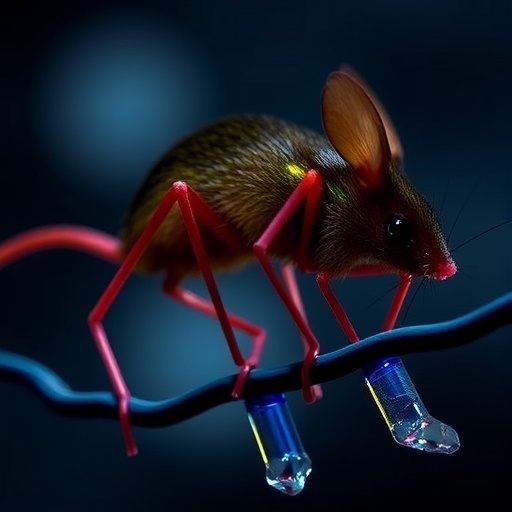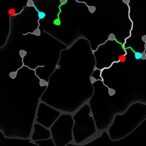
In a groundbreaking revelation that could reshape the future strategies against one of humanity’s most persistent and deadly infectious diseases, recent research has illuminated a novel metabolic pathway through which β-hydroxybutyrate exerts potent inhibitory effects on the malaria-causing parasite, Plasmodium falciparum. This finding not only advances our molecular understanding of host-parasite interactions but also opens promising avenues for therapeutic intervention rooted in metabolic modulation rather than conventional antiparasitic drugs.
Malaria, caused predominantly by Plasmodium falciparum, continues to pose an immense global health challenge, with millions afflicted annually and hundreds of thousands of fatalities, especially in sub-Saharan Africa. Traditional antimalarial drug development has frequently battled against rising parasite resistance, underscoring the urgent need for alternative, innovative biochemical strategies that could circumvent or complement existing treatments. In this context, the revelation that β-hydroxybutyrate, a key ketone body produced during states of altered metabolism such as fasting or ketogenic diets, can impede parasite development marks a radical shift in malaria research paradigms.
At the cellular level, Plasmodium falciparum undergoes a complex intraerythrocytic lifecycle, relying heavily on host resources and finely tuned metabolic networks to replicate and propagate. The research conducted by Wei, Jiang, Zhang, and colleagues meticulously elucidates how β-hydroxybutyrate disrupts these internal biochemical pathways within the parasite, leading to significant impairment of its growth and proliferation. This metabolic interference occurs through the modulation of epigenetic regulators and redox homeostasis mechanisms that are critical for parasite survival.
One of the most salient aspects of the study is the demonstration of β-hydroxybutyrate’s capacity to alter parasite epigenetic landscapes. Plasmodium falciparum depends on precise epigenetic modifications to regulate gene expression essential for its developmental transitions. The ketone body impressively modulates histone deacetylase activity, which in turn affects chromatin accessibility and the transcriptional control of key virulence and replication genes. This epigenetic reprogramming halts the parasite’s progression through its lifecycle, offering a novel mechanistic insight into metabolic regulation of pathogen biology.
Moreover, the research highlights the redox balancing role of β-hydroxybutyrate within infected red blood cells. The parasite’s rapid growth generates substantial oxidative stress, necessitating robust antioxidant defenses. β-hydroxybutyrate acts as an antioxidant modulator, tipping the delicate redox equilibrium to the detriment of the parasite. By attenuating critical reactive oxygen species clearance pathways, it imposes metabolic stress on the parasite that culminates in inhibited replication and increased susceptibility to immune clearance.
Animal model experiments provide compelling evidence for the in vivo relevance of these findings. Mice treated with β-hydroxybutyrate exhibited markedly reduced parasitemia levels and improved survival rates post Plasmodium infection. This protective effect was achievable without overt toxicity or immune suppression, suggesting that metabolic therapy employing ketone bodies could be a viable adjunct or alternative to existing antimalarial pharmacotherapy. Notably, the protective mechanism appears to involve both direct antiparasitic effects and supportive modulation of host immune responses.
The translational potential of these results cannot be overstated. Given that β-hydroxybutyrate levels can be pharmacologically elevated via dietary interventions such as ketogenic diets or exogenous ketone supplements, this research suggests a tantalizing, accessible therapeutic approach. Such strategies may prove particularly valuable in malaria-endemic regions where resource constraints limit access to conventional drugs, or in cases where drug resistance severely reduces treatment efficacy.
Furthermore, the study imparts crucial insights into the broader implications of host metabolic states on infectious disease outcomes. It underscores a growing appreciation in biomedical science for the role of metabolic intermediates not only as energy currencies but also as critical signaling molecules that influence pathogen dynamics and host defense mechanisms. This metabolic-immunological interface could redefine approaches to managing infectious diseases beyond malaria, potentially impacting other parasitic, bacterial, and viral infections.
Despite its groundbreaking nature, the research also opens new questions demanding further exploration. The precise molecular targets within Plasmodium affected by β-hydroxybutyrate remain incompletely characterized, and the long-term consequences of metabolic modulation on both parasite evolution and host physiology require in-depth investigation. Additionally, determining optimal delivery methods and dosing regimens for achieving therapeutic ketone body concentrations in human subjects is essential for clinical translation.
The broader biochemical landscape implicated by β-hydroxybutyrate’s activity hints at possible synergies with existing antimalarial drugs. Combining metabolic modifiers with standard therapies may enhance efficacy, delay resistance emergence, and reduce side effects. Preclinical studies designed to test such combinatorial regimens are a logical next step, potentially ushering in a new era of tropism-guided, metabolism-based malaria treatment protocols.
From an evolutionary perspective, the intertwining of host metabolism and parasite development suggested by this research invites intriguing hypotheses regarding natural selection pressures that have shaped host-pathogen co-adaptation. The capacity of a host-derived molecule to compromise parasite fitness exemplifies a subtle form of biochemical immunity that could have significant ecological and epidemiological ramifications, especially in populations with variable metabolic health profiles.
Moreover, the findings may resonate beyond infectious diseases into oncology and metabolic disorders, where β-hydroxybutyrate and ketogenic interventions are already under intense scrutiny. Cross-disciplinary research inspired by this study may reveal universal principles of metabolic regulation applicable to diverse disease contexts, thereby amplifying its scientific and clinical impact.
Public health implications are equally profound. With malaria disproportionately affecting low-income populations, the prospect of a low-cost, metabolically based prophylactic or therapeutic intervention is highly attractive. It aligns with WHO goals for malaria eradication by complementing vector control and vaccination efforts with host-targeted metabolic approaches, potentially accelerating progress toward global malaria elimination.
In summary, the discovery that β-hydroxybutyrate inhibits Plasmodium falciparum development and affords protection against malaria in murine models represents a milestone in infectious disease research. It redefines the conceptual boundaries of antimalarial strategies, foregrounding metabolic modulators as potent allies in the fight against this devastating disease. Future research will be critical in translating these promising preclinical results into safe, effective therapies that can transform malaria management worldwide.
As we grapple with the persistent challenge of malaria, this exciting research heralds a paradigm shift—one where our own metabolic processes and their byproducts become powerful tools to outmaneuver a formidable parasitic foe. The intersection of metabolism, epigenetics, and host-pathogen interaction has never been more vital, and the promise of β-hydroxybutyrate ushers in a new chapter in the enduring quest to eradicate malaria.
Subject of Research: Metabolic inhibition of Plasmodium falciparum development by β-hydroxybutyrate and its protective effects against malaria in murine models.
Article Title: β-hydroxybutyrate inhibits Plasmodium falciparum development and confers protection against malaria in mice.
Article References:
Wei, Z., Jiang, N., Zhang, Y. et al. β-hydroxybutyrate inhibits Plasmodium falciparum development and confers protection against malaria in mice. Nat Metab (2025). https://doi.org/10.1038/s42255-025-01302-0
Image Credits: AI Generated
Tags: alternative malaria therapiesfasting and parasitic infectionsgroundbreaking malaria research findingshost-parasite interactions researchinnovative biochemical approaches to malariaintraerythrocytic lifecycle of malariaketone bodies and disease resistancemetabolic modulation antimalarial strategiesPlasmodium falciparum inhibitionresistance to traditional antimalarial drugssub-Saharan Africa malaria challengeβ-hydroxybutyrate malaria treatment



